"How are Americans being received abroad these days? Are we still welcome?”
It’s a fair question — and one we’ve heard more often lately, especially with headlines swirling about overtourism, gentrification protests, and the political noise coming out of Washington.
The truth is, no one can speak for every community or every person. But in our decades exploring life overseas, one thing stays constant: People everywhere can tell the difference between the bluster of politicians and the real, respectful individuals who show up in their towns.
Whether you’re visiting for a week or putting down roots for good, your welcome abroad almost always comes down to your attitude. Locals notice when you’re kind and curious, when you make an effort with the language, when you genuinely want to be part of the place you’ve chosen to call home.
A French commenter said it best under a video we recently shared: “If you are kind, welcoming, socially active people, French people will treat you the same. If you behave like entitled morons… they won’t.”
Below, our correspondents share what they’re seeing in their own communities — from city centers feeling the squeeze of overtourism to smaller towns where expats who integrate and contribute are still warmly embraced.
The World’s Best Retirement Havens for 2026
The World’s Best Retirement Havens for 2026
24 Countries Compared, Contrasted, Ranked, and Rated. You don’t have to be rich to enjoy a pampered retirement, you just need to know where to go. With our 35th Annual Global Retirement Index, our experts hand you a detailed roadmap. Details—and a Special Offer—Here

By submitting your email address, you will receive a free subscription to IL Postcards, Overseas Dream Home, The Untourist Daily and special offers from International Living and our affiliates. You can unsubscribe at any time, and we encourage you to read more about our Privacy Policy.
Malaysia
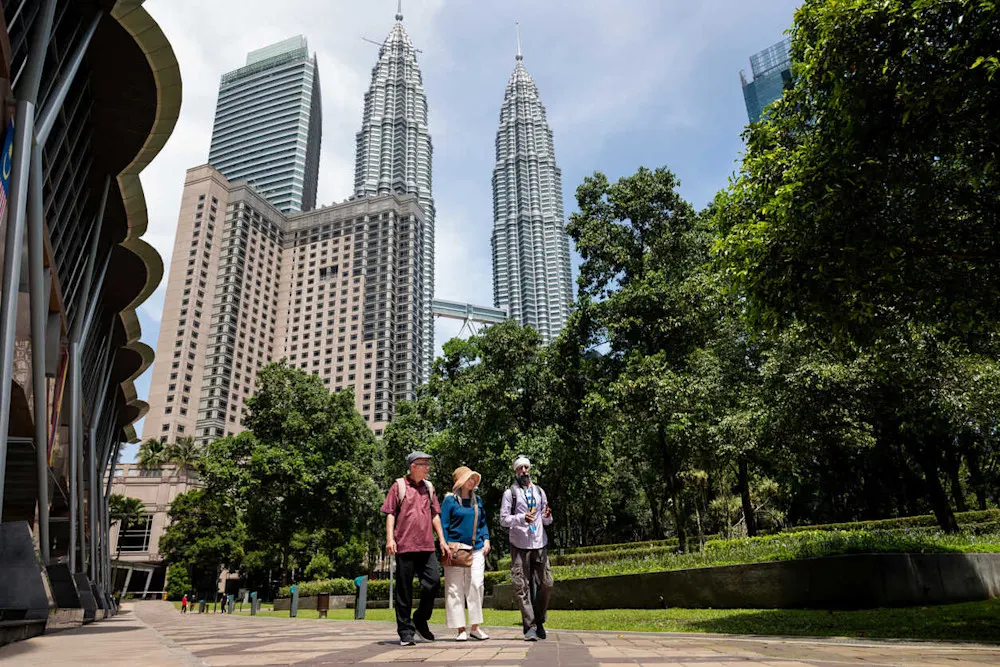
If you’ve ever traveled in Malaysia, whether visiting from abroad or taking a break in a different state, you’ll know that the welcome here is something special. It’s not just a marketing line, it’s real. You can feel it the moment you step off the plane or hop off a bus, wherever you land.
I’ve lost count of how many times I’ve asked for directions and ended up with someone walking alongside me, chatting the whole way, sometimes even taking a detour from their own plans just to show me where to go. It doesn’t matter if I’ve got an unfamiliar accent or if I’m just another Malaysian exploring somewhere new; there’s always someone ready with a smile or a helping hand.
Some of my favorite moments have started with nothing more than a quick chat over coffee at a roadside stall. What begins as a simple conversation so often turns into something more, a spontaneous invitation to join a family meal, a chance to share jokes and stories with strangers who quickly become friends. That’s just how people are here. The warmth isn’t forced, and you never have to earn it.
And honestly, a smile is all it takes. Even if I don’t know the right words, a genuine smile opens doors. Once, at a packed market, I smiled at a stall owner, and suddenly she was waving me over, offering me tastes of her cakes and cookies, explaining every flavor. It didn’t matter where I was from; all that mattered was that moment of connection.
People here appreciate even the smallest effort, whether it’s a heartfelt terima kasih, a laugh at your own attempt to speak Malay, or a simple curiosity about the food. Locals are just as curious about you, where you’re from, and what you think of their favorite spicy dish. More often than not, you’ll walk away with a new story and maybe a new friend.
As long as you respect the culture, Malaysia opens itself up to you, whether you’re an expat, a foreign visitor, or a Malaysian on holiday. This is a place where, with nothing more than a smile and a bit of openness, you really do feel at home.
Panama
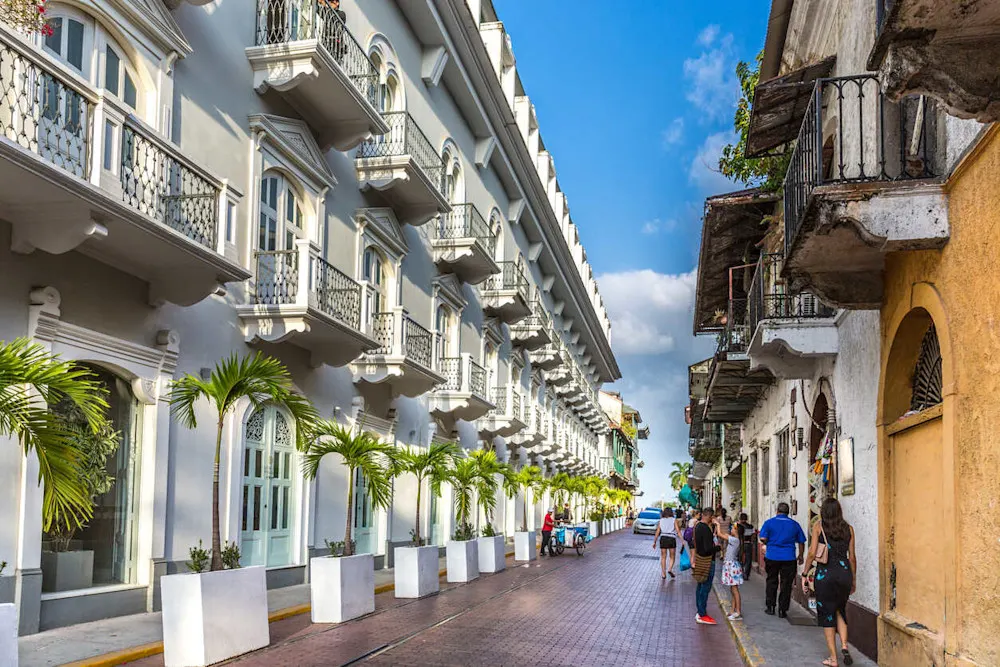
By Jess Ramesch
One of the best things about Panama, particularly in 2025, is that it hasn’t changed too much.
I keep reading about fatigue and backlash in over-touristed cities in Europe… a seemingly increasing number of all-too-popular destinations where housing prices and a glut of short-term rentals have locals smarting and sometimes resentful of new arrivals.
Panama is different. It has long been a top-notch business and retirement destination, but as a target for tourism… it’s funny. The country still has such an under-the-radar feel. (Though yes, your tourism dollars are wanted!)
It’s not too densely populated. The beaches are still mostly uncrowded. It’s a tiny country compared to behemoths like Mexico, and yet there’s a great sense of space… room to grow. Even in Panama City, with all its sparkling new high-rises.
Central America’s only cosmopolitan capital has always been “pricey” by local standards — that’s nothing new. I look around at all the upwardly mobile Panamanians doing amazing things… learning Japanese, building robots, building crypto empires… and I see ambition, a desire to go places and change things. What I don’t see is an untoward focus on foreigners.
Even with the poverty we have here — yes, the wealthiest country in Latin America has poverty, too. Even with the many valid concerns… protests… things that need to change… there’s no particular resentment toward “outsiders” or “gringos.” Panama has been an international crossroads for centuries. It’s less “Gringo, go home” and more “Gringo, you’re home.”
(By the way, while gringo may be used in a derogatory fashion in other countries, here it’s a common, non-derogatory term for North Americans.)
Spain
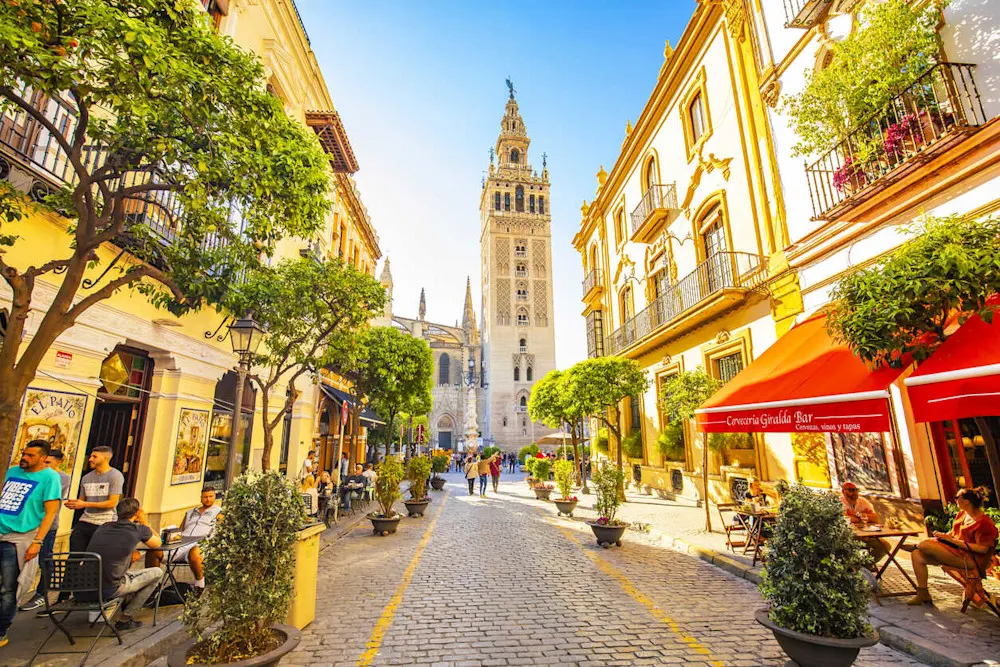
I moved to Spain ten years ago, and I would say, as a generalization, attitudes toward expats and tourists have definitely shifted in the past few years, especially toward U.S. citizens. Spain’s economy has relied on tourism and has welcomed Europeans who have moved here for decades. So being a foreigner in Spain isn’t new. What is new is the housing crisis, which is due to many reasons.
I think locals are still welcoming, but the truth is there’s growing frustration, especially in popular cities (like Barcelona), about rising rents and the lack of affordable housing. Foreigners are often blamed, even though the root causes are far more complex: government policy, short-term rentals like Airbnb, real estate investment funds buying up properties, lack of new construction, etc. Expats, especially those from the U.S., aren’t really the main cause, but we’ve become an easy target.
Americans who make the effort to integrate, learn Spanish, and participate in the local community (and don’t buy investment properties to turn into Airbnb’s) are generally met with kindness. I feel the resentment is more toward the housing situation than Americans themselves. Also, there are many cities and towns in Spain facing depopulation. They need people to move there and aren’t dealing with the housing issues that cities like Barcelona, Madrid, Málaga, and Valencia are dealing with.
Someone pointed out that the number of visas issued to Americans is in the tens of thousands. 20,000, 30,000, even 50,000 aren’t the root cause of a housing crisis in a country of 48 million people.
Thailand

International tourism accounts for approximately 20% of Thailand’s Gross National Product, and the country welcomes visitors from all corners of the globe.
The sentiments of locals toward tourists can vary significantly from one region to another. In more laid-back areas, such as Chiang Mai, Chiang Rai, and other northern towns, the local population remains welcoming and friendly. In contrast, in party-centric places such as Phuket and Pattaya, the attitude tends to be more businesslike and reserved. This change in demeanor is primarily due to the decades of mass tourism, with double-decker buses unloading millions of package tourists seeking five-star experiences on two-star budgets.
Sun, sand, and sea in destinations like Koh Samui, Koh Phi Phi, and Koh Lanta make for great places to visit and live. However, they can become quite expensive as local merchants raise prices to extract more money from foreigners who have limited alternatives. While on Koh Samui, I once paid double for a simple meal of khao mun gai (chicken and rice) simply because I was trapped on the island.
It’s ideal to live close enough to a tourist destination to enjoy its convenience and amenities while still being far enough away to avoid the sometimes hardened attitudes of locals. Recently, I visited the beautiful beaches along Thailand’s Eastern Seaboard, specifically Mae Ramphueng and Mae Phim, located just east of Rayong. I found it to be the perfect place to live. It’s only an hour away from the bright lights of Pattaya and two hours from the bustling capital city, Bangkok. The small towns along the coast still maintain an authentic atmosphere, with the friendliest locals I’ve encountered in Thailand.
Expats, as opposed to tourists, are often treated like royalty. Once Thai people realize that you live here and have embraced their culture, they welcome you as family. My advice is to learn a bit of the Thai language, dine at local mom-and-pop restaurants, and make some Thai friends. Life in Thailand becomes truly enjoyable once you venture beyond the KFC and Starbucks zone.
The World’s Best Retirement Havens for 2026
The World’s Best Retirement Havens for 2026
24 Countries Compared, Contrasted, Ranked, and Rated. You don’t have to be rich to enjoy a pampered retirement, you just need to know where to go. With our 35th Annual Global Retirement Index, our experts hand you a detailed roadmap. Details—and a Special Offer—Here

By submitting your email address, you will receive a free subscription to IL Postcards, Overseas Dream Home, The Untourist Daily and special offers from International Living and our affiliates. You can unsubscribe at any time, and we encourage you to read more about our Privacy Policy.
Uruguay
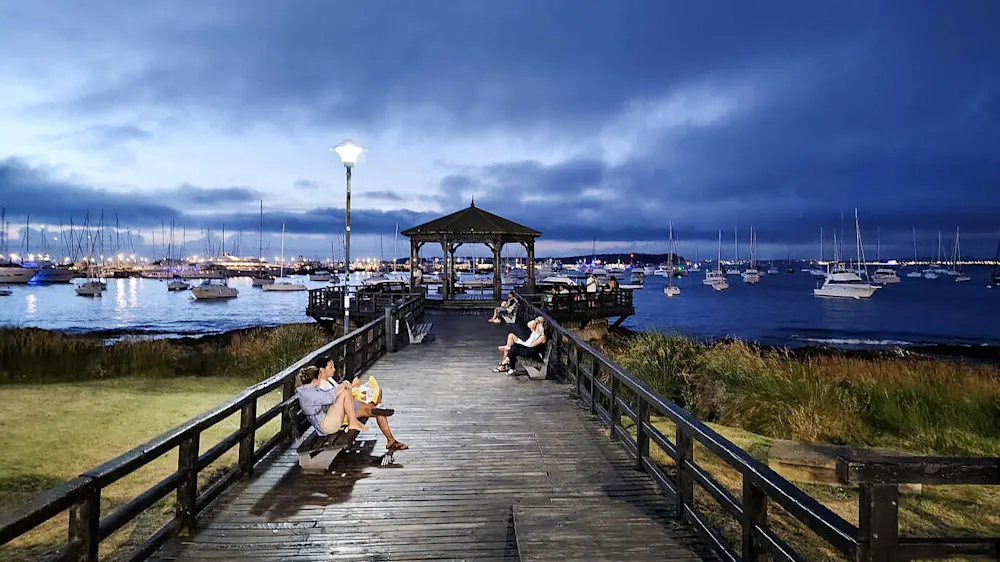
Right now, Uruguayans are generally positive about both tourism and expats.
Tourism is a valued and appreciated industry in Uruguay. Besides the many hospitality businesses, tourism spending here includes the construction, administration, maintenance, and management of vast numbers of vacation homes in small beach resort towns that dot the Uruguayan coast for 200 miles between Montevideo and the Brazilian border.
Most Uruguayans living in coastal cities have a close friend or relative who relies, at least in part, on tourism for their living. So, they appreciate the jobs it brings.
The Uruguayan government offers incentives for tourists to choose Uruguay, including tax discounts on credit card purchases made with cards issued outside of Uruguay.
Regarding how locals feel about expats, most Uruguayans are descendants of immigrants to Uruguay. Most know their own family’s immigration story and are welcoming to newcomers who are humble, respectful of the culture, and fair-minded.
The government of Uruguay encourages newcomers with favorable residency and tax rules, allowing foreigners to buy any type of real estate, including farmland, with the same rights and protections as Uruguayan citizens, without any special conditions or strings.
I’ve not heard of any general backlash against vacationers and expats by Uruguayan locals. In Montevideo’s Old City, where I live, there was a movement against gentrification by low-income locals, as they feared it would push them out of their own neighborhood.
However, the city resolved the issue by implementing mitigation measures that included building more low-income housing and developing better recreational facilities, so locals could stay and have it better than before. During the whole matter, I never heard anyone blame tourism and expats as the cause of the problem.
Mexico
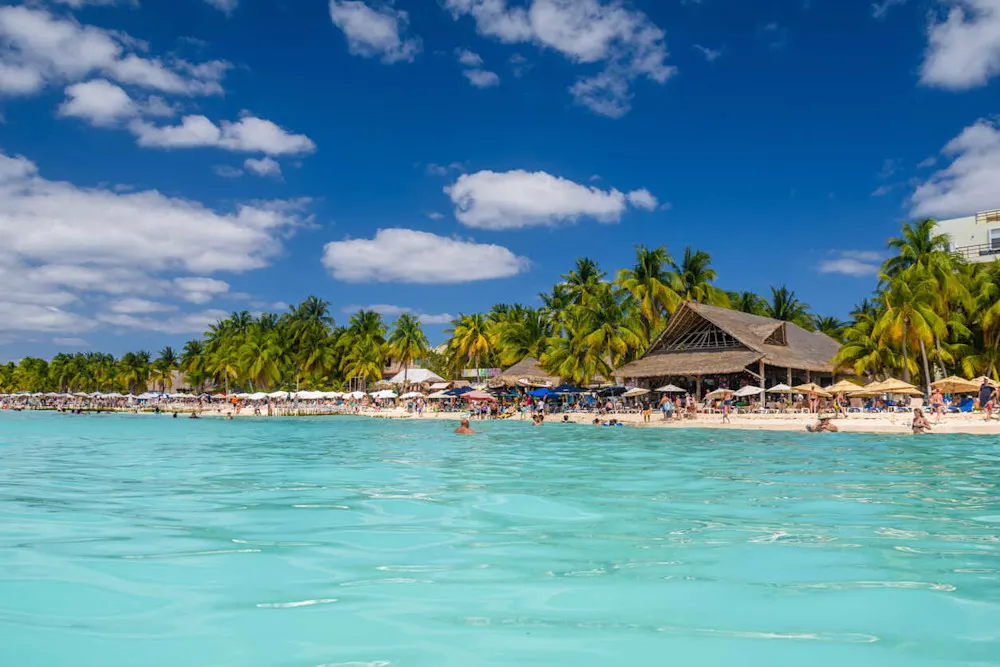
Living in one of Mexico’s largest and busiest tourism areas, we get a lot of foreigners. English is widely spoken, and everyone is welcoming and warm. No one wants to upset the tourists, or they’ll stop coming, and that’s not good for anyone. So a lot of locals will smile and keep their thoughts to themselves.
But the longer you live here, the more Mexican friends you’ll make who perhaps don’t speak English, or very little. That’s when they’ll confide in you if anything expats do ticks them off.
Here’s a great example: The other day I met a lady at my new ocean swimming area. The first thing she asked me (in Spanish) was if I spoke Spanish. I answered in Spanish — yes, but I’m learning, not fluent. Instantly, her face brightened and she replied, “That’s good; it’s important.” All the other ladies smiled and nodded, and it gave me automatic acceptance.
I’ve noticed more and more over the last six months that locals ask if I speak Spanish. People moving here and expecting everyone to speak English is not fair. Learning Spanish, no matter how long it takes, shows respect and that you want to fit into your new adopted country and culture. Now, instead of getting eye rolls, I’m warmly embraced as someone who is trying. It enriches every interaction I have and makes me realize how much it bugs people who have lived here their whole lives.
But don’t be deterred. Mexicans, in general, are very warm and welcoming. It is a very respectful society, so even just learning how to say “good morning” or “good evening” will be appreciated.
Belize
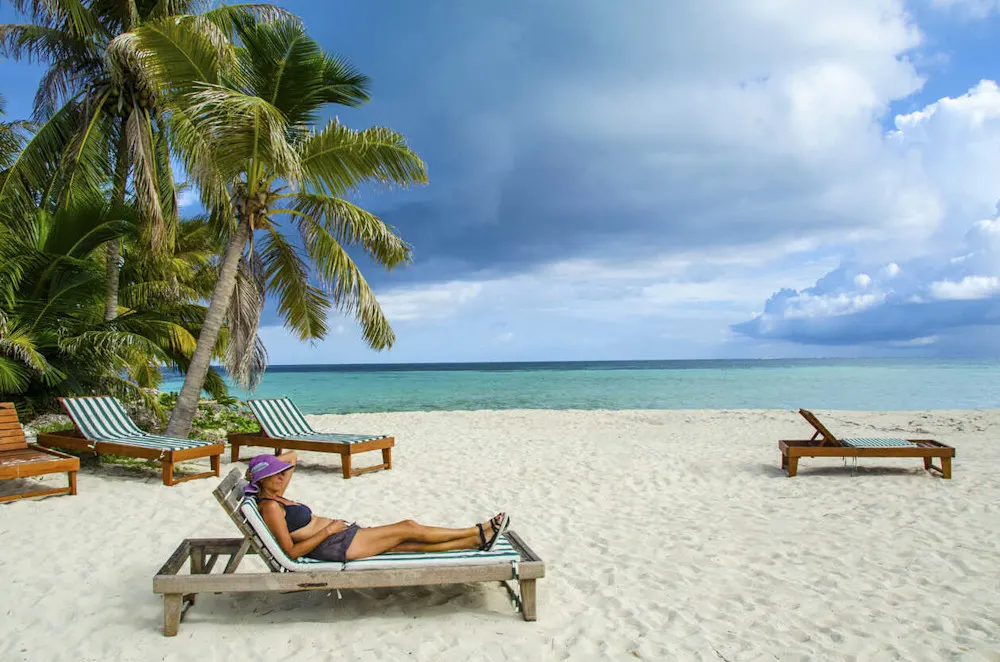
My husband and I have been in Belize for four years now. We arrived at the tail end of the COVID pandemic. We still had to undergo testing upon arrival in Belize and again before returning to the U.S. During this time, we purchased a townhouse and settled in. We have felt welcomed by most locals during our sojourn here, but recently, there has been an undercurrent of unhappiness with expats here in the village of Placencia. This doesn’t seem to be happening in other areas of Belize.
The unhappiness stems from the rise in housing costs for locals. As more expats arrive, purchase available lots, and build houses that they only live in for a fraction of the time, it has caused housing costs to rise. The complaints, however, come mostly from a group of 20 to 30 villagers who rant on Facebook. There is little to no animosity toward those of us who live here full-time. That being said, the expats who are not popular with locals are those who constantly say, “That’s not how we do it where I come from,” and those who try to close their piers and beaches, because the beach belongs to everyone in Belize, and piers are open from 6.00 a.m. to 6:00 p.m. for anyone to pull their boat up and tie off.
Tourists are greatly needed here and appreciated by locals, so it is a bit of a conundrum to strike the right balance between tourism and expat living.
France
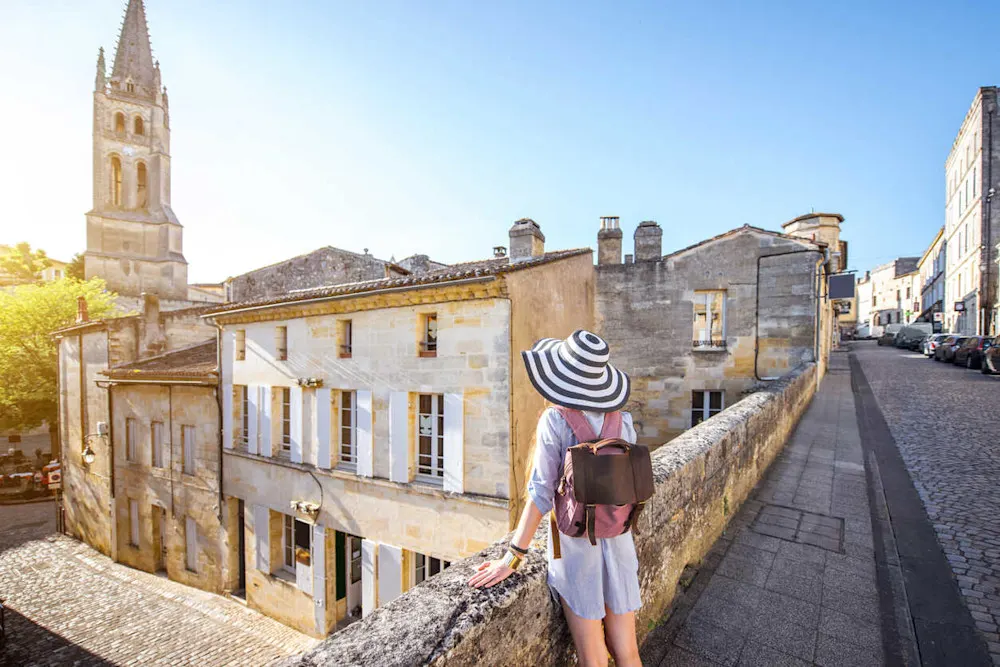
As one of the most visited cities in the world, ho-hum attitudes toward tourists in the City of Light are nothing new. Parisians will do as Parisians do — dodge Americans, Canadians, and travelers from around the world on their way to some fabulously chic rendezvous or simply maneuver through their daily commute. On my last visit to the capital, it seemed like business as usual. Tourists are just part of the city’s daily makeup, neither terribly welcomed nor shunned, as much a permanent fixture as the Eiffel Tower or Champs-Élysées.
On the other hand, in my recent travels around the south of France, I’ve actually noticed an improvement in attitudes. As the region and much of the country depend heavily on tourism revenue, the post-COVID climate has ramped up hospitality efforts. The fact that more French folks at the Marseille airport (fresh off a complete remodel) are more apt to speak to you in English, as well as in bistros and cafés along the French Riviera, is a telling change. Even in Toulon, the closest city to where we live, which was once known as a military backwater, has put on a cheerful face.
Even the large-scale cruise ships that dock for the day at the city’s port haven’t dampened local attitudes — a big win for the local economy … and tourists alike.
Costa Rica
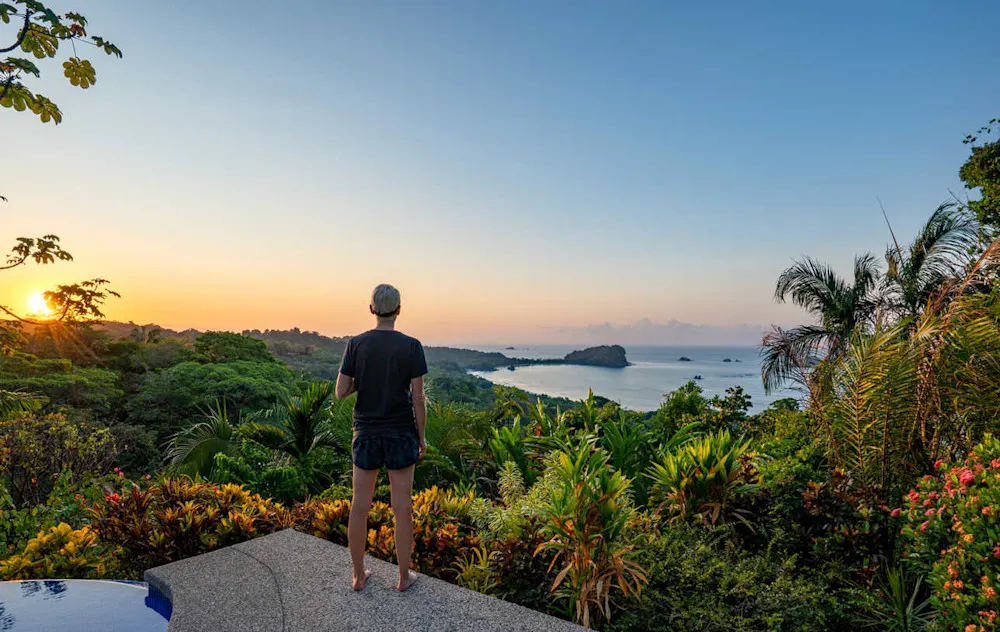
Gentrification is a hot topic in Costa Rica these days, and it tends to flare up whenever a region grows popular. Foreigners arrive and buy properties as investments, driving prices up and making it harder for Ticos to afford to live near where they work. What feels like a fair deal for someone from the U.S. can be out of reach for a local family.
The biggest challenges show up in tourist towns along the coast, where new expats often arrive with much higher incomes. In places like Tamarindo, I’ve seen people posting rental budgets of $4,000 a month, four or five times what many locals earn, pushing owners to double their prices or switch to Airbnbs.
Coastal development is also under scrutiny in places like Pavones and Nosara, where locals worry about unchecked construction harming the environment and the communities that depend on it. It’s a strong reminder that it’s our responsibility, as expats, to respect local rules and protect the very beauty that draws people here.
Costa Rica is a friendly country that welcomes everyone, but it’s up to us expats to make thoughtful choices that help communities grow, not just chase quick profits.
Final Thoughts
What comes through loud and clear from every corner of the globe is this: how you’re welcomed depends less on where you’re from and more on how you show up.
In a world wrestling with overtourism and housing pressures, respectful expats who make an effort to learn a few words of the local language, contribute rather than just consume, and greet neighbors with a smile, are still met with warmth in many places we love.
It’s one more reminder that the real secret to living well overseas isn’t just about lower costs or better weather, it’s about the connections you make when you treat your adopted home like home.
So, are expats still welcome? Almost always, if you show up with openness and a smile.
The World’s Best Retirement Havens for 2026
The World’s Best Retirement Havens for 2026
24 Countries Compared, Contrasted, Ranked, and Rated. You don’t have to be rich to enjoy a pampered retirement, you just need to know where to go. With our 35th Annual Global Retirement Index, our experts hand you a detailed roadmap. Details—and a Special Offer—Here

By submitting your email address, you will receive a free subscription to IL Postcards, Overseas Dream Home, The Untourist Daily and special offers from International Living and our affiliates. You can unsubscribe at any time, and we encourage you to read more about our Privacy Policy.
